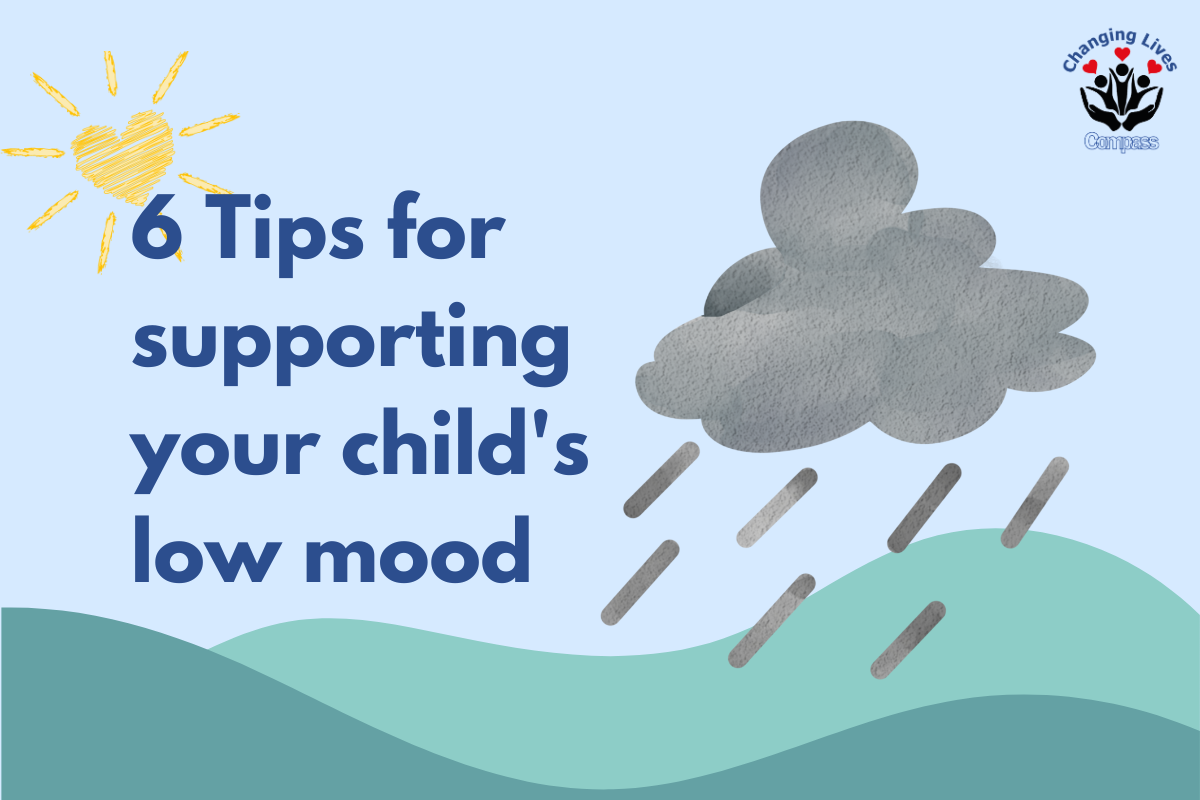
Low mood is something that everyone feels from time to time. It’s normal for children to feel upset, grumpy or sad, but these feelings usually pass. When negative emotions, thoughts and behaviours last for a longer period of time, it could be a sign of low mood.
So, as parents and carers, it is important to be able to recognise the signs of low mood, and how to support your child through any difficult emotions.
Here are 6 helpful strategies to support your child with low mood:
1. Do An Activity They Enjoy
Talk with your child and help them to think about what activities they enjoy doing. Spend some time with your child doing their favourite activity. Doing so will help your child to feel happier and reduce feelings of low mood.
2. Talk It Out
Gently let your child know that you have noticed that they’re feeling down. Create a safe, non-judgmental space for your child to share their feelings. Try not to ask too many questions, and focus on empathising and relating with your child. Sometimes, your child may not be ready to talk. Reassure them that you are there whenever they are ready.
3. Keep A Journal
Encouraging your child to write a journal can help them to process their emotions. Some children may prefer to draw images of how they are feeling.
4. Keep Active
Physical activity can be really beneficial to boost energy levels and reduce feelings of low mood. This is due to the endorphins (‘feel good’ chemicals) that are released. Join in with your child and get the whole family involved – you could go for a walk, run, bike ride or yoga!
5. Try Something New
Trying a new activity with your child can help them to learn new skills which in turn can reduce feelings of low mood. Get creative!
6. Sleep Hygiene
A good night’s sleep is so important to help our children’s bodies and brain recover from everything they did during the day. It helps their concentration, learning, behaviour and mental health. See our Top Tips for supporting your child’s sleep for more support.
Remember, strategies take time!
It is important to remember that everyone is different, and it can take time to work with your child and figure out what helps them best when they are feeling down. If your child’s mood is not getting better with time and you’re feeling concerned about their mental health, please seek professional support and advice from their GP.
Back to Online Resources
